The content of the article
Many dog owners face such a problem that the animal is chattering its teeth. This phenomenon raises many questions, because almost no one knows the reasons for this behavior. It is worth noting that the reasons that the pet knocks his teeth can be both the safest, for example, if the animal experiences chills, and quite serious when the pathological process begins to develop in the dog's body. That is why you should pay attention to this feature, and take the animal to the veterinarian so that he can diagnose the disease in time, if any.
Knocking the teeth as a reaction of the male to the female
Sometimes males show a strong click or snap of their teeth when they are in a state of intense excitement. This happens, of course, in the presence of a bitch.To understand that the reason really lies in the excitement, you need to assess the presence of other signs:
- The animal's jaw begins to move intensely up and down.
- Excitement is not yet fully occurring, the penis of the pet is half visible.
- Male begins to attempt to jump on the female, failing to control themselves.
A similar condition in dogs can occur no sooner than after reaching the age of six to eight months. As a rule, at this time males begin to clap their teeth due to excessive arousal. The complete balance of hormonal background in an animal converges to about three years, some even a year later. Until this age, the clicking of the teeth can often be observed in males.
In some cases, if the dog does not get satisfaction with the female, he starts jumping on people and even household items. At such an age and state, the clapping of teeth is absolutely normal, since in this way the animal shows its maturity and readiness to enter into intercourse with the female.
Clicking teeth in the presence of parasites in the intestine
An animal can clap its teeth due to the fact that worms live in its intestines. In this case, clicking is due to pain in the abdomen. To understand that the pet has really got parasites that bring him discomfort, it is possible by the following symptoms:
- Sleep disturbance in an animal.
- Disorder of the digestive system, abnormal stools, bloating in the intestines.
- The animal can freeze.
- In the feces of the dog, inclusions from blood, flakes or mucus can be observed.
- A puppy may develop dehydration.
- There is a sharp decrease in immunity.
- The animal becomes very weak and inactive, it becomes more and more difficult for a pet to move every day.
- In the anus, the animal feels a constant itch. It is possible to observe how parts or whole worms come out.
It should be understood that to detect and cure worms quickly can not. Therefore, do not hesitate. If your pet is gritting his teeth, you need to check his fecal mass for the presence of worms eggs. An early visit to a veterinarian will determine the presence of parasites and begin treatment of the animal as soon as possible.
Violations of the nervous system - the cause of teeth gnashing
If the animal clicks its teeth, the reason may be hiding in a variety of pathologies of the nervous system. For example, deviations from the norm may occur due to the development of viral diseases such as rabies and dog plague. These ailments are very dangerous, so timely referral to a specialist will provide an opportunity to save a pet.
Note:
- Symptomatology manifests itself quite late, in the early stages of the development of the disease, it is almost impossible to understand its presence. As a rule, the first signs appear when the virus has already progressed in the body.
- In more advanced cases, the animal begins to tremble almost constantly, it is quite actively drooling.
- It is important to begin treatment as soon as the first symptoms of the disease appear, since the death of the animal may occur within three weeks after the first signs show.
- If your pet has bitten you, then in the area of the wound will be severe itching.
- The animal becomes noticeably more aggressive as well as quickly excitable.
- The dog's jaw gradually droops, so that you can watch the sound of your teeth.
- The pupils of the animal are greatly dilated.
- In rabies, a pet may experience a fear of light, as well as difficulty in swallowing food. As a rule, the animal becomes cold. The owner should take appropriate measures to ensure your pet a dry and warm room.
As the pathology develops in the animal, the nervous system and muscle tissue are damaged. As a result, the death of the animal gradually occurs.
Before determining the disease in a pet, a doctor will need to conduct a series of clinical studies. Until the moment when all results are obtained, the animal will be placed in a hospital under quarantine conditions.
Any dog breeder can prevent the occurrence of diseases. For example, the most common way to protect a pet from rabies is vaccination. If the animal is still infected, the only sure way would be to put the dog to sleep, as there is no special medicine for the treatment of rabies today.
There are quite a number of pathologies that are capable of provoking the clicking of the teeth, and therefore, if a similar symptom is detected, you should immediately contact a specialist.Timely treatment allows you to save a pet and greatly alleviate its condition.
Severe pains as the cause of tooth knocking
Sometimes an animal starts to scrape with its teeth when it experiences severe pain. The cause of the manifestation of pain can be a variety of ailments and pathologies. In order to correctly understand why an animal clicks its teeth, what exactly it hurts, and what is the root cause of the appearance of pain, you should pay attention to other signs:
- Detection in females of blood, pus or other fluids from the genitals.
- Noticeable swelling of the intestines in a pet
- Increased body temperature of the animal.
- Pain in the head and ears.
The presence of these signs indicates the presence of pathology in the body of the animal. However, it is unlikely that any of the breeders will succeed in determining on their own the cause of pain and dental knocking. At the same time, the reasons can be both absolutely safe and normal for certain breeds and species of animals, as well as threatening their life or health. The only right decision when detecting a knock at the pet and other symptoms will be an appeal to the veterinarian.
Only a specialist in the state, on the basis of the examination and necessary research, has established the true cause of the pet's illness. It is after consulting with the doctor that the treatment of the animal should begin. Folk techniques can also be used, but only after the approval of a specialist.

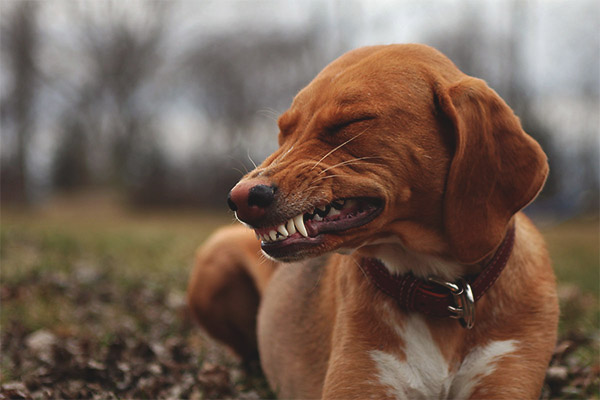
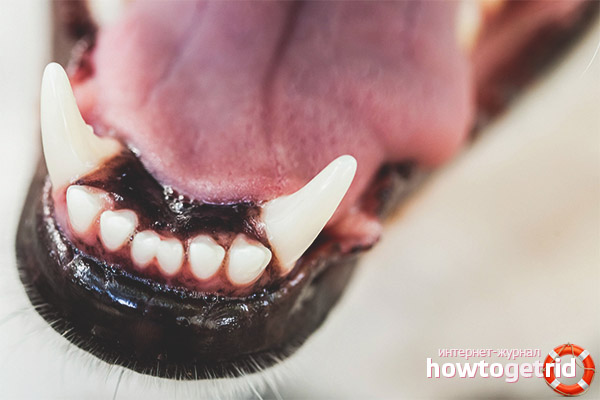

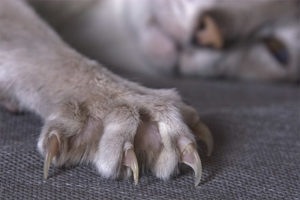
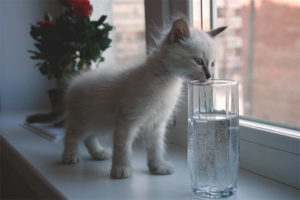

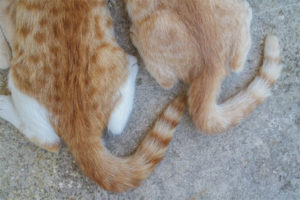
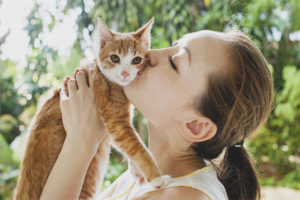
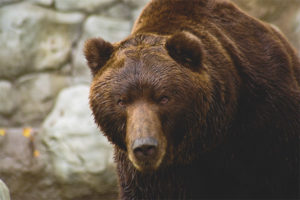

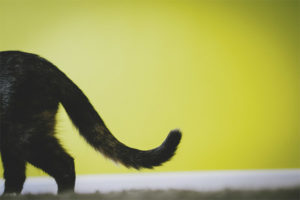
To send